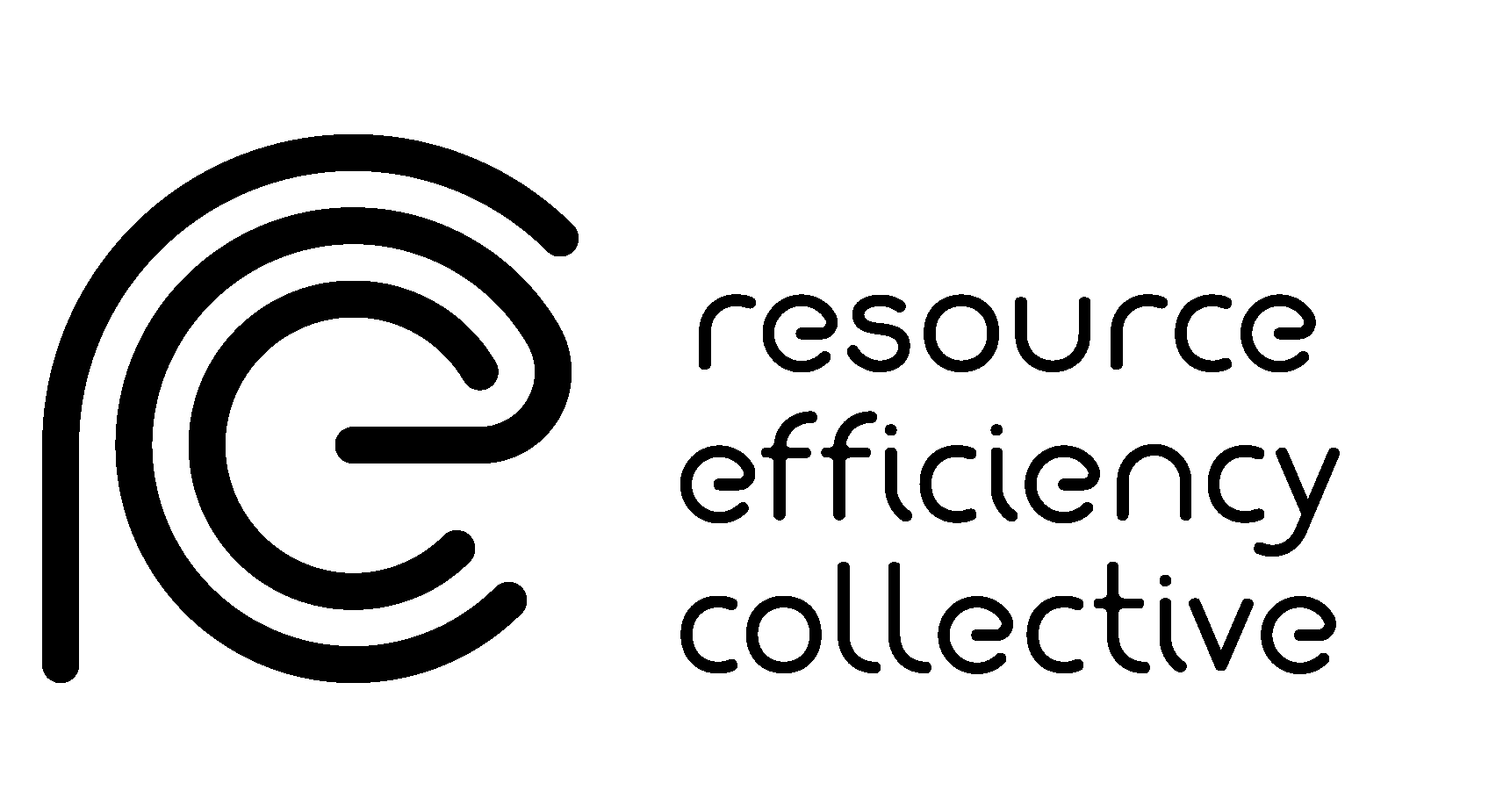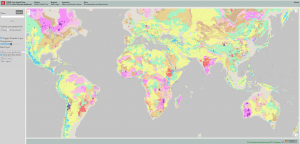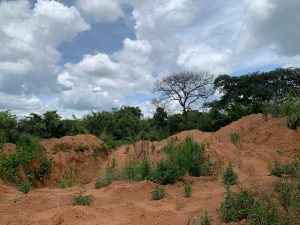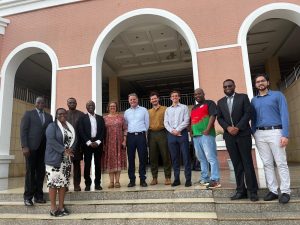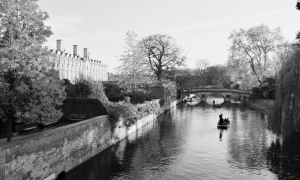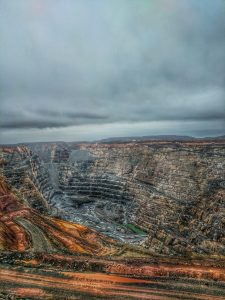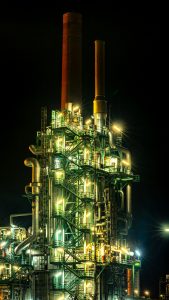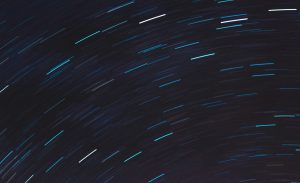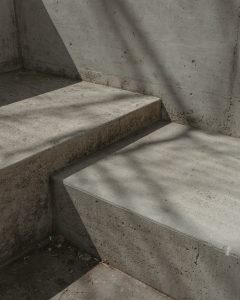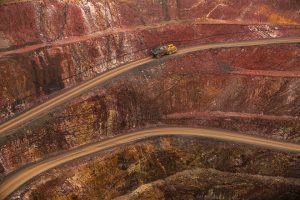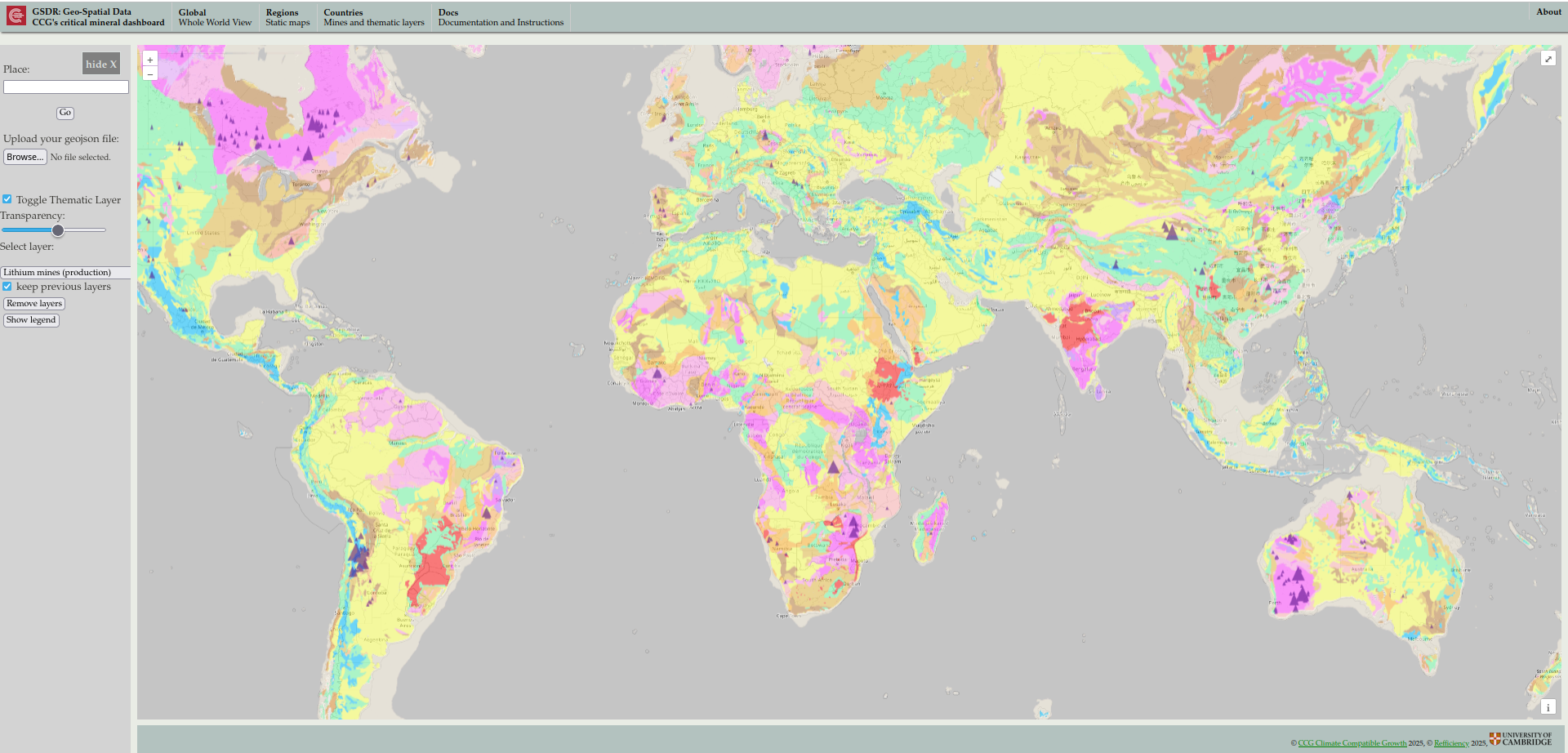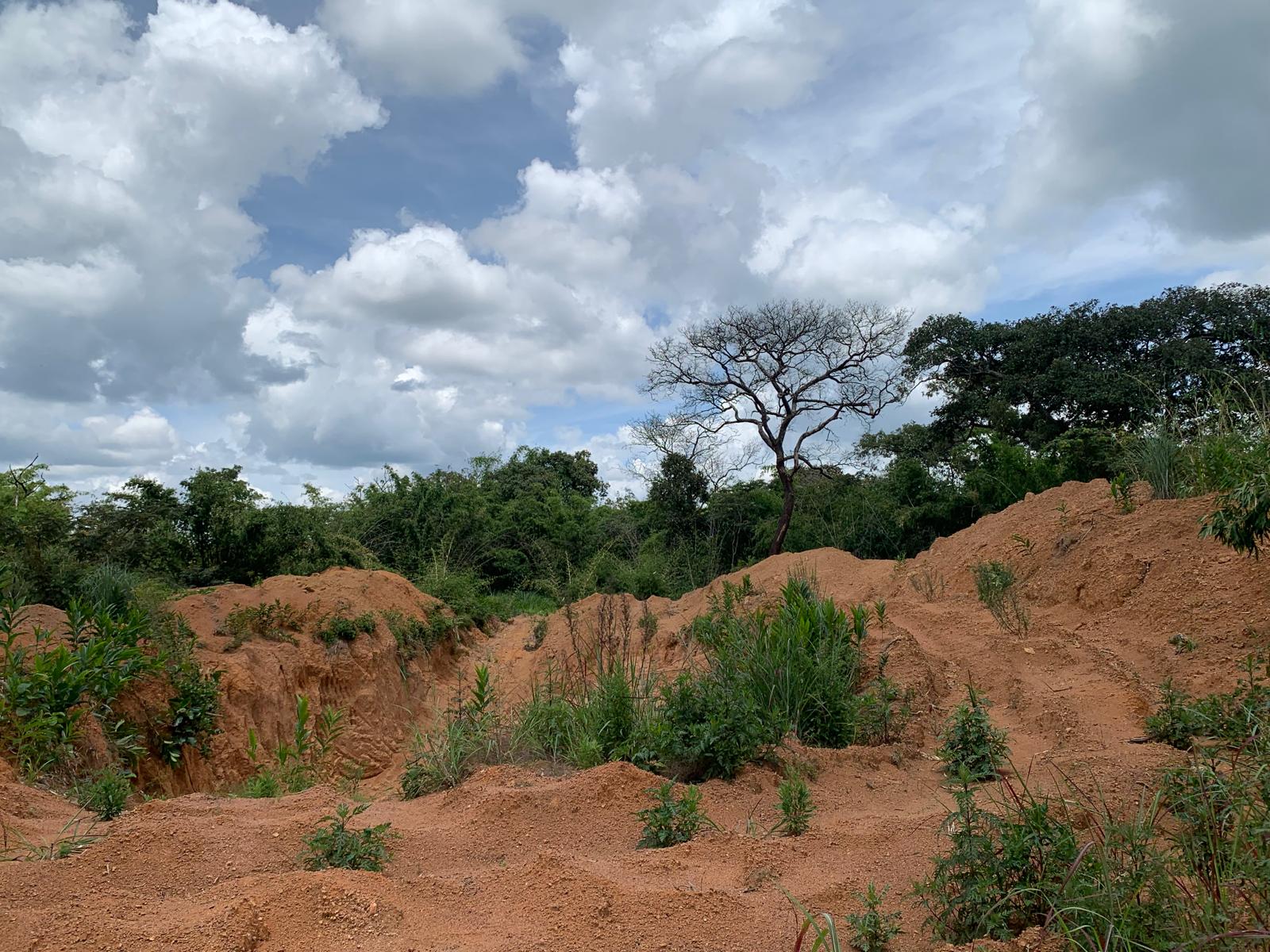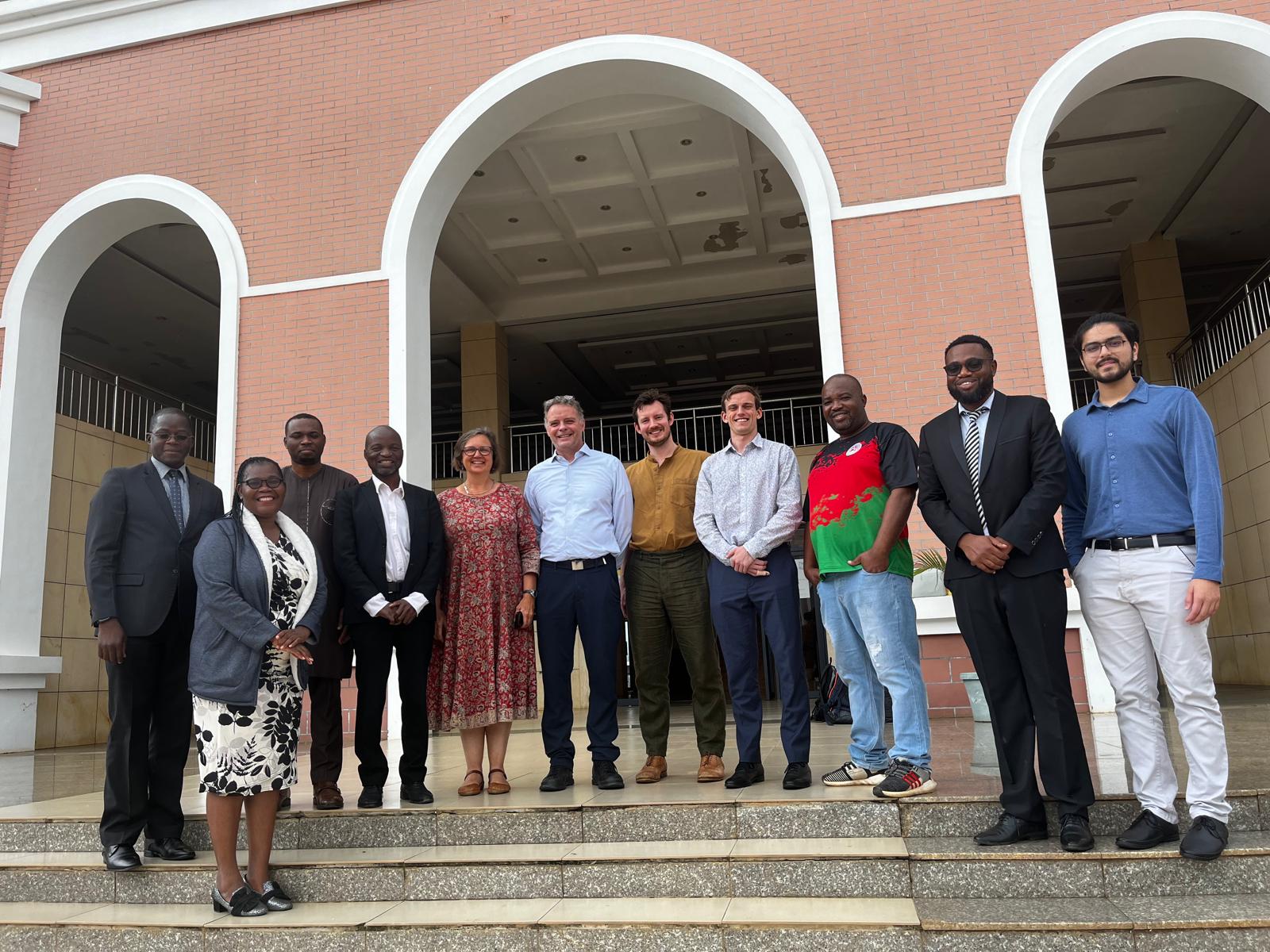Reflections on the Sustainable Materials Research Workshop
Natanael reflects on the Sustainable Materials Research workshop, sharing some highlights and insights of his time with the TransFIRe Research Assistants in sunny Crete, Greece.
From the 24th to the 27th of April, the Sustainable Materials Research workshop took place at the European Sustainability Academy in Greece. The workshop aimed to support and equip TransFIRe researchers with the skills and confidence to deliver ambitious commitments. The programme of events included a series of talks, facilitated sessions, industry visits, and networking opportunities.
The first talk presented the origins and philosophy of ESA, followed by a presentation by one of the architects of the project, who described the challenges involved in designing and constructing the building. The ESA building is built using natural materials, such as straw bale, and the architect discussed how the building was designed.
We were challenged with two main tasks: giving a 1-minute elevator pitch, and preparing an Ignite-style presentation. The Ignite presentation format involves 20 slides that change after 15 seconds, making it a challenging presentation style that requires a well-structured story with slides that support the message. The presentations highlighted the high calibre and quality of the researchers in the program.
Throughout the week, the group explored some local destinations. One visit took us to Biolea, where we were guided through the organic olive oil-making process and tasted the different flavoured oils. We then ate lunch prepared by a local chef using foraged ingredients and a classical Greek dish called Staka. After lunch, the TransFIRe researchers discussed potential options to increase the circularity of biomass and other byproducts of the olive oil processes.
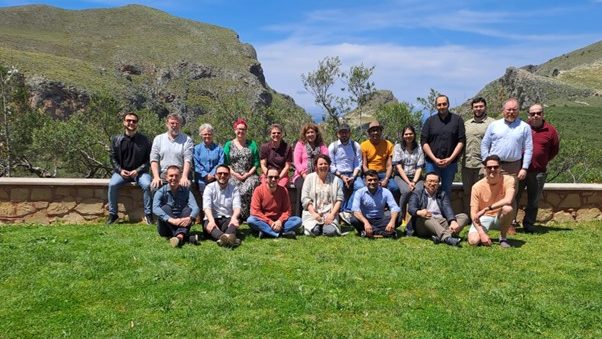
Other visits included the Dourakis winery, where we took part in a wine-tasting session and a tour given by the founder, Mr Dourakis. We also toured an upcycling facility that converts used container glass into refined pieces of glass using an ancient technique dated back to 2000 years ago. Additionally, the group visited a waste treatment facility and covered the entire process.
Another interesting visit was to an experimental field where a house was built using different wall-making techniques to observe the effects of weather and climate on the different techniques. The place was managed by one of the partners of the architecture company that built ESA.
These visits provided valuable insights into businesses and activities that prioritise sustainability, contribute to building resilience in the local economy, and demonstrate how to effectively turn sustainability concepts into tangible practices.
A session on the researchers’ journey provided an opportunity to reflect on why we decided to become researchers and discuss the challenges of academic careers and how to overcome them. Professor Richard Murphy gave a presentation entitled “Reflections on Professionalism: Research, Academia, and Industry,” which provided great insights into communication, working in an interdisciplinary team, and remembering that researchers are representatives of their projects. The key message from these sessions is to have a vested interest in your work, strive for excellence in your tasks, and most importantly, understand that you are an integral part of a team.
In-house TransFIRe team members also gave interesting and inspirational talks. Professor Sue Black gave a great talk on her journey of overcoming adversity. Lampros Litos presented the OASIS technique for communicating research. This session ended up with the task of implementing the OASIS technique to reach the UK prime minister – a challenging task that gave me a lot of insights into the current political system in the UK. Professor Konstantinos Salonitis led a discussion on how to read a plant quickly, which provided insights on how to engage more effectively with industry stakeholders on site visits. There was also an explanation of the REF system by Prof Rossi Setchi, which highlighted the importance of focusing on high-quality research.
One highlight of the workshop was the food, which was locally sourced, sustainably produced, and had low mileage. Several meals were vegetarian, but the most notable meal was the dinner that featured snails as the source of protein, which was surprisingly delicious. On the last night, the meal was based on a typical meal from ancient Greece circa 4000 years ago, prepared by the sustainable food expert Stella Diomantarakis. The Cretan drink raki was served after all the meals, symbolising friendship, nobility, and social communication.
Adding to the already memorable experience, the night before the Ignite presentation, while I was finalising my slides, I felt my bed move. It turned out to be an earthquake that occurred in the northern region of Crete, which was another unexpected part of my journey during the workshop.
To conclude, I would like to leave you with a quote from my Ignite presentation:
“The transition to a sustainable future starts with sustainable manufacturing. Let’s build a better world, one product at a time.”
Click to read more about Natanael and his research with the TransFIRe project.
Photo credit: Stepan Unar
